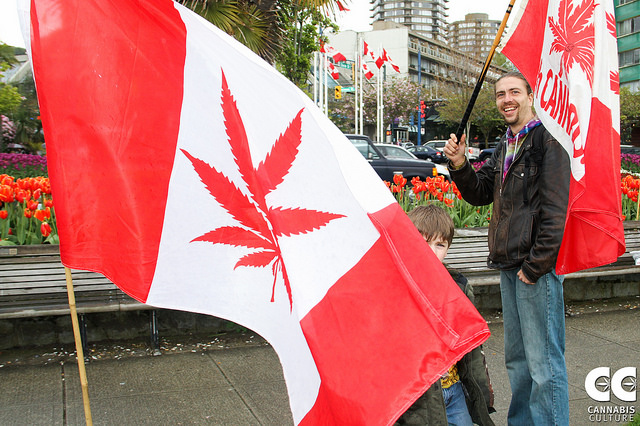
This week, Phispers brings you news on the oversubscription of EU’s online pharmacy Zur Rose, and Amazon’s plans of entering the online pharma business. While shareholders voted against Mylan’s executive pay policy, former Turing CEO Martin Shkreli faced trial. In Canada, supply shortages are likely to play spoiler in the country’s plans to rollout legal recreational marijuana. And Evaluate’s latest World Preview report scaled down its forecasts for worldwide drug sales growth.
Zur Rose IPO
gets over-subscribed; Amazon may launch its online pharmacy soon
Swiss online pharmacy Zur Rose Group's initial public offering (IPO) is already well oversubscribed. Zur Rose aims to raise up to 230 million Swiss francs (around US$ 240 million) through the share sale to aid its expansion plans in Germany, open new shops and possibly make acquisitions, the company said last week.
The company, which was founded by Swiss doctors back in 1993, has been valued at between 780 to 870 million Swiss francs (US$ 813.5 million to US$ 907.4 million). The IPO is expected to be priced in range of 120 francs to 140 francs (US$ 125 to US$ 146) per share.
Demand from long-term investors in Germany, Switzerland, Britain and the United States is being cited as the key reason behind the oversubscription of Zur Rose’s IPO. The stock is due to start trading on the SIX Swiss Exchange on July 6.
This news should come as music to Amazon’s ears. Amazon is hiring a business lead to figure how the company can break into the multibillion-dollar online pharmacy market. Amazon is learnt to have begun recruitments from the pharmacy space.
According to news reports, over the last few years, the Amazon headquarters in Seattle has been discussing whether it should enter the pharmacy business or not. But this year it is ready to get more serious with its plans.
Mylan board
survives shareholder meet but receives vote against executive pay policy
Last week, we carried news on how rebel investors had upped the ante against Mylan and wanted the drugmaker to remake its board, in wake of the scandal over the high prices of EpiPen. Well, last week, the Mylan shareholders voted against the generic drugmaker's executive pay policy, but re-elected the board at its annual meeting held on June 22.
The company did not disclose the vote totals for the directors. In order to vote out the directors, rebel investors needed more than two-thirds of the shares voted, as well as more than half of Mylan’s outstanding shares.
New York City Comptroller Scott Stringer, who is one of the chief leaders of this campaign, said failure to disclose the vote totals suggests that the directors of Mylan faced strong opposition.
“This company massively hiked prices on life-saving drugs, allegedly overcharged the government for its products, allowed excessive executive pay to go unchecked — all ultimately fundamental failures of board oversight,” Stringer said.
BlackRock, Mylan's third-largest shareholder with more than 5 percent of the company's shares, said it had voted against four of the drugmaker’s directors as well as its executive pay.
Meanwhile, a Reuters report points that a non-pharmaceutical offering – refined coal – has quietly generated hundreds of millions of dollars in tax credits for Mylan over the last six years, thereby boosting its bottomline.
Since 2011, Mylan has bought 99 percent stakes in five companies across the US that own plants which process coal to reduce smog-causing emissions. It then sells the coal at a loss to power plants. This way, it generates credits for itself, that lower Mylan’s tax bill.
Supply shortages may delay Canada’s rollout of legal recreational marijuana market
Canada plans to legalize the recreational marijuana market over the next one year. This will make it the first economy to do so. However, the biggest challenge for Canada’s prime minister Justin Trudeau’s legalized pot market is, well, shortage of marijuana.
This was revealed by Canada’s minister of finance Charles Sousa. The supply crunch was discussed during a meeting with provincial and federal counterparts last week, Sousa said.
According to an analyst, the Canadian government may use the supply shortage as an excuse to delay rolling out the program.
“Ultimately the biggest problem that appears after today’s discussion is one of supply,” Sousa said. According to his ministry officials, the demand is “quite high” for marijuana. “So we want to make certain that, when we do proceed, there is sufficient supply to accommodate the activity because what we’re trying to do is curb the illicit use and organized crime that now exists around it,” Sousa added. Trudeau had unveiled the framework for legalization of marijuana in April this year.
Pricing
pressure causes worldwide drug sales forecast to fall for first time in 10
years
Across the world, increased scrutiny on the pricing of medicines is beginning to have an impact on drug sales growth.
According to Evaluate’s latest World Preview report, consensus forecasts for worldwide drug sales are estimated to hit US$ 1.06 trillion in 2022. However, this is down from the US$ 1.12 trillion that analysts had forecast for the same period last year.
It’s the first time in a decade that Evaluate’s forecasts for total drug sales have failed to beat previous year forecasts.
However, sales of some of the industry’s top-selling products, such as cancer immunotherapies Keytruda and Opdivo, are expected to help push the sector to its expected trillion dollar sales target. According to this report, despite increasing questions around their pricing, orphan drugs are poised to make up a third of pharma sales by 2022.
“The continued political and public scrutiny over pricing of both the industry’s new and old drugs is not going to go away and we are starting to feel the impact now. Market access is becoming harder, as seen by the disappointing sales of the drugs like Repatha, Praluent, and Nucala. And the increasing cost of taking a novel therapy to market, now at US$ 4 billion over the last 10 years puts additional pressure on the productivity of the industry and its longer term sustainability,” Antonio Iervolino, head of forecasting, Evaluate, said.
Meanwhile, a Reuters report said the first ever EU antitrust probe into excessive drug pricing is unnerving the European drug industry, with lawyers worried about the reach of market intervention.
Last month, the European Commission probed whether Aspen Pharmacare made “unjustified” hikes of up to several hundred percent in the cost of five old cancer drugs.
Poster boy of
price gouging and America's most hated man Martin Shkreli faces trial
Martin Shkreli, who is often referred to as the “most hated man in America” for raising the price of a life-saving drug by 5,000 percent, is undergoing trial this week for a Ponzi-like scheme at his former hedge fund (MSMB Capital Management) and drug company (Retrophin).
Shkreli will face charges of securities fraud in federal court in Brooklyn, New York, more than 18 months after he was arrested in December 2015.
Back in 2015, as the CEO of Turing Pharmaceuticals, Shkreli had angered patients and US lawmakers by raising the price of anti-parasitic drug Daraprim from US$ 13.50 a pill to US$ 750.
Shkreli has been accused of lying to investors in the hedge fund and siphoning off millions of dollars in assets from biopharmaceutical company Retrophin Inc to repay them. He has pleaded not guilty.
The trial will be heard by US District Judge Kiyo Matsumoto in Brooklyn, and is expected to last four to six weeks.
Nestle may sell L’Oreal stake, which could lead to share sale of Sanofi
Dan Loeb, activist investor, recently encouraged Nestle SA to sell its stake in L’Oreal. Loeb has amassed a US$ 3.5 billion stake in Nestle SA.
This demand by Loeb could lead to the divestment of yet another long-standing investment: L’Oreal’s US$ 11.6 billion (or Euro 10.4 billion) holding in French drugmaker Sanofi.
Paris-based cosmetic maker L’Oreal owns about 9.4 percent of Sanofi. For several years now, speculation has been rife that L’Oreal would sell the stock to finance a repurchase of Nestle’s L’Oreal shares.
Nestle had taken the stake in L’Oreal 43 years ago, as the latter had feared nationalization. Back in 1973, L’Oreal had taken control of a French drugmaker named Synthelabo. And in 1999, Synthelabo merged with Sanofi, leaving L’Oreal as a key shareholder.
If both these divestments — by Nestle of L’Oreal and by L’Oreal of Sanofi — see the light of the day, they would manifest the growing power of activist investors in Europe.
Spokespersons for both L’Oreal and Sanofi declined to comment on a stake sale.
The PharmaCompass Newsletter – Sign Up, Stay Ahead
Feedback, help us to improve. Click here
Image Credit : The 2014 Global Marijuana March in Vancouver by Cannabis Culture is licensed under CC BY 2.0
“ The article is based on the information available in public and which the author believes to be true. The author is not disseminating any information, which the author believes or knows, is confidential or in conflict with the privacy of any person. The views expressed or information supplied through this article is mere opinion and observation of the author. The author does not intend to defame, insult or, cause loss or damage to anyone, in any manner, through this article.”






